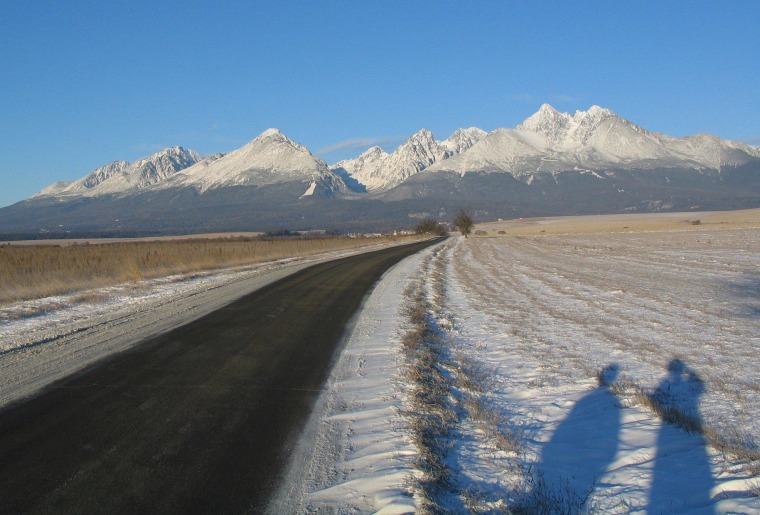By John Roach, NBC News
Prolonged cold snaps over the past 1,000 years in Eastern Europe coincided with plague outbreaks, civil unrest and declines in human settlement, according to a new study that also finds the region is warmer now than it has been for the past millennium.
“It is not accurate to say that whenever it is cold you have problems, that is not the case, but there is a tendency,” study leader Ulf Büntgen, a paleoclimatologist at the Swiss Federal Research Institute in Zurich, told NBC News.
Years- to decades-long cold spells tend to reduce agricultural productivity. With less food to go around, tensions rise, health declines, and populations crash, he explained.
The Black Death in the mid-14th century, the Thirty Years War in the 17th century and the French Invasion of Russia in the early 19th century all occurred during the coldest episodes of the past millennium, Büntgen and colleagues report today in the Proceedings of the National Academy of Sciences.
The findings are based on the width of individual tree rings in 545 pieces of wood taken from living trees and construction timbers in northern Slovakia. Wider rings, the researchers explain, correspond with warmer springtime — growing season — temperatures.
The study echoes a paper published in the journal Science in 2011 where Büntgen and colleagues linked climate change to the fall of the Roman Empire and other maladies, including the spread of plague.
What’s new here, he said, is that a tree ring temperature record had never been established for this region of Eastern Europe, providing an opportunity to compare climate variability with documentary evidence for civil unrest and outbreaks of plague there.
Unprecedented warming
The findings also add to the ever-growing evidence that the recent warming just about everywhere around the world is without equal.
The Eastern European record, Büntgen noted, is too short to account for a warm period during medieval times that other research indicates matched or exceed the warmth of the past decade in some regions, but was far cooler globally.
The medieval warm period is a rallying point for people who are skeptical that human activity is affecting the global climate.
Michael Mann is a climate scientist at Penn State University whose studies of tree rings and other temperature proxies helped draw the iconic hockey stick graph that shows the past five decades are the warmest in several centuries.
“There is nothing very Earth shattering” about the new findings, he told NBC News via email.
“The reason that climate scientists are confident that recent warming exceeds that of at least the past millennium isn't from individual studies focusing on one region (e.g. Eastern Europe), using one type of data (tree-ring measurements),” he said.
Rather, it’s the collection of studies from ice cores, corals, and cave deposits called speleothems in addition to tree rings from various regions of the globe that “indicate that the modern warming is unprecedented”
Climate and human history
For Büntgen, the granularity of the study is its crowning strength. Over the past millennium, the climate was different in different areas of the world. Averaging temperature records from around the world, he said, leads to a loss of information on regional climates.
“If you want to compare climate variability with human history, those things are much more essential and important at the regional scale because that is where things happen,” Büntgen said.
The approach of “looking for blips in the tree-ring record in an effort to explain each and every historical event in the region” is worrisome, Mann said. “It belies the actual complexity of history.”
But if this history is taken as a guide to the future, are there lessons to be learned? Other research conducted by Büntgen shows that southern Europe is already suffering from a drier, warmer climate but in Eastern Europe tree growth and mushroom productivity are enhanced.
“It is getting warmer but at the same time not drier,” he said. “So ecosystems, agricultural systems are, I would say, benefiting from such a climate change.”
John Roach is a contributing writer for NBC News. To learn more about him, check out his website.
